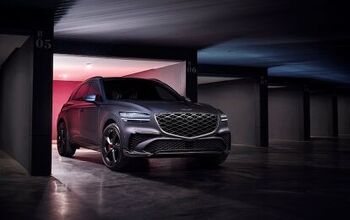Another Model Loses Its Manual Transmission

There’s probably no shortage of eyeball rolling over this headline, as manual transmissions wouldn’t be fading out of the marketplace if buyers actually desired one.
Once upon a time, a stick-shift guaranteed better fuel economy, but those days are pretty much gone. It was also a great way to reduce the entry price of a particular model, but automakers’ thirst for larger margins and fewer configurations means what few base, stick-shift models roll off the line are often hidden from consumer view in the real world. This only serves to sink popularity even further.
The ongoing trend has apparently reached the Honda HR-V, which undergoes a mild refresh for the 2019 model year. As part of this update, say goodbye to the six-speed manual in Honda’s smallest ‘ute.
Honda spokesperson Chris Martin confirmed to CarsDirect that the three-pedal setup disappears from the HR-V stable for 2019. The tranny served as the go-to for front-wheel-drive LX and EX trims in the United States. An extra $800 swapped the stick for a continuously variable unit that just happened to return better gas mileage — a whole three miles per gallon more on the combined cycle (31 mpg for the FWD CVT, 28 mpg for the FWD manual).
Having once driven a base FWD, manual HR-V, I found the experience obviously more engaging than coasting around in a CVT-equipped model. Honda’s traditionally low gearing and the base model’s skinny tires made the HR-V’s presence known during jackrabbit red light launches. Not boredom-inducing, at any rate.
But customers seem to prefer the seamless spool-up of a CVT, and that’s the way it is. The stick-shift HR-V’s take rate remains a mystery, though it couldn’t have been very high. (“High” meaning any figure approaching 5 percent).
With the manual bowing out of the HR-V, the smallest utility segment grows ever more devoid of sticks. Besides this year’s HR-V, buyers can choose from just the Kia Soul, which may or may not qualify as a crossover, the Jeep Renegade Sport, and the Subaru Crosstrek to satisfy their row-your-own lifestyle.
(A query sent to Honda Canada as to whether the Great White North model sees a similar powertrain change didn’t yield an answer by publication time. We’ll update this post when we hear back.)
[Image: Honda]

More by Steph Willems
Latest Car Reviews
Read moreLatest Product Reviews
Read moreRecent Comments
- Tassos Under incompetent, affirmative action hire Mary Barra, GM has been shooting itself in the foot on a daily basis.Whether the Malibu cancellation has been one of these shootings is NOT obvious at all.GM should be run as a PROFITABLE BUSINESS and NOT as an outfit that satisfies everybody and his mother in law's pet preferences.IF the Malibu was UNPROFITABLE, it SHOULD be canceled.More generally, if its SEGMENT is Unprofitable, and HALF the makers cancel their midsize sedans, not only will it lead to the SURVIVAL OF THE FITTEST ones, but the survivors will obviously be more profitable if the LOSERS were kept being produced and the SMALL PIE of midsize sedans would yield slim pickings for every participant.SO NO, I APPROVE of the demise of the unprofitable Malibu, and hope Nissan does the same to the Altima, Hyundai with the SOnata, Mazda with the Mazda 6, and as many others as it takes to make the REMAINING players, like the Excellent, sporty Accord and the Bulletproof Reliable, cheap to maintain CAMRY, more profitable and affordable.
- GregLocock Car companies can only really sell cars that people who are new car buyers will pay a profitable price for. As it turns out fewer and fewer new car buyers want sedans. Large sedans can be nice to drive, certainly, but the number of new car buyers (the only ones that matter in this discussion) are prepared to sacrifice steering and handling for more obvious things like passenger and cargo space, or even some attempt at off roading. We know US new car buyers don't really care about handling because they fell for FWD in large cars.
- Slavuta Why is everybody sweating? Like sedans? - go buy one. Better - 2. Let CRV/RAV rust on the dealer lot. I have 3 sedans on the driveway. My neighbor - 2. Neighbors on each of our other side - 8 SUVs.
- Theflyersfan With sedans, especially, I wonder how many of those sales are to rental fleets. With the exception of the Civic and Accord, there are still rows of sedans mixed in with the RAV4s at every airport rental lot. I doubt the breakdown in sales is publicly published, so who knows... GM isn't out of the sedan business - Cadillac exists and I can't believe I'm typing this but they are actually decent - and I think they are making a huge mistake, especially if there's an extended oil price hike (cough...Iran...cough) and people want smaller and hybrids. But if one is only tied to the quarterly shareholder reports and not trends and the big picture, bad decisions like this get made.
- Wjtinfwb Not proud of what Stellantis is rolling out?


































Comments
Join the conversation
Not htey're, they're
What is awful is that manufacturers so often prevent you from getting a manual in the upper trim levels; by defacto they are creating the environment that kills manuals. I'd love a manual transmission in an upper trim level vehicle. I cling to my 20 year car because it is a manual.